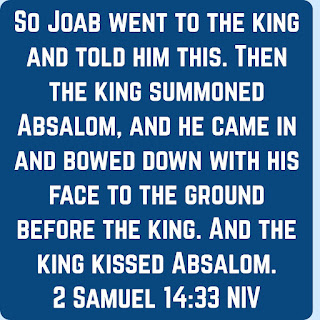Day 120: Chronological Bible in One Year Devotion🙏🙏:
David's return to power was not without its challenges. In 2 Samuel 19:31-43, we see his humility and grace toward loyal followers like Barzillai, as well as the tension between Judah and Israel—foreshadowing future division in the kingdom. The fragility of unity, even in victory, reminds us to handle transitions with wisdom and honor.
2 Samuel 20 introduces Sheba’s rebellion, yet another reminder that even after a major victory, opposition can rise. Joab's brutal tactics silenced the revolt, but they also exposed the cost of unchecked ambition and violence. David's silence in this chapter speaks volumes—leaders must sometimes wrestle with the consequences of others' choices.
In Psalm 7, David cries out for vindication, trusting God's justice in the face of false accusation and threats. God's justice is not always immediate, but it is sure.
Then in 2 Samuel 21, a famine reveals an unresolved injustice from Saul’s reign. David’s response teaches the importance of making things right—even when the cause is rooted in the past. The latter part of the chapter, along with 1 Chronicles 20:4-8, celebrates continued victories over giants, showing us that God’s faithfulness continues across generations.
Through it all, we learn this: God's justice, restoration, and strength never fail. In our leadership, relationships, or personal battles, we must lean on His righteousness, make peace when needed, and fight the giants with courage.
Prayer: Father, You are my shield and my righteous judge. Help me pursue justice, honor others, and walk in integrity. Heal unresolved places in my life and give me wisdom in the face of opposition. May I always rely on You for strength, unity, and victory. In Jesus’ name, Amen.




























